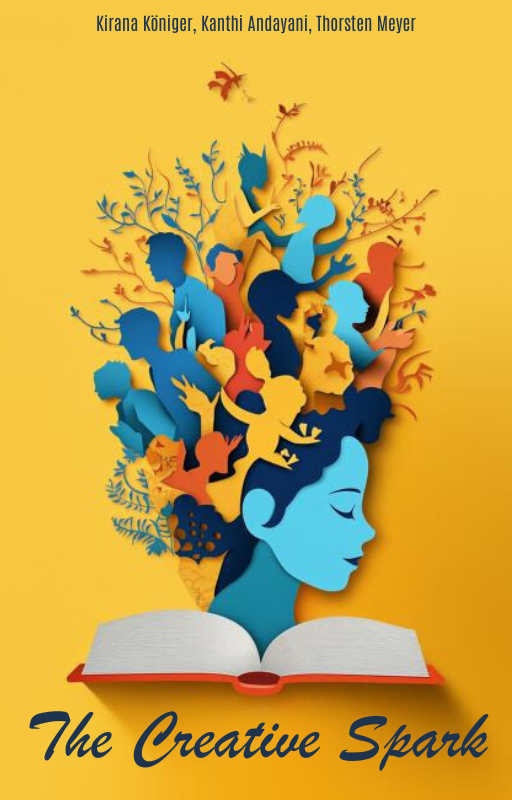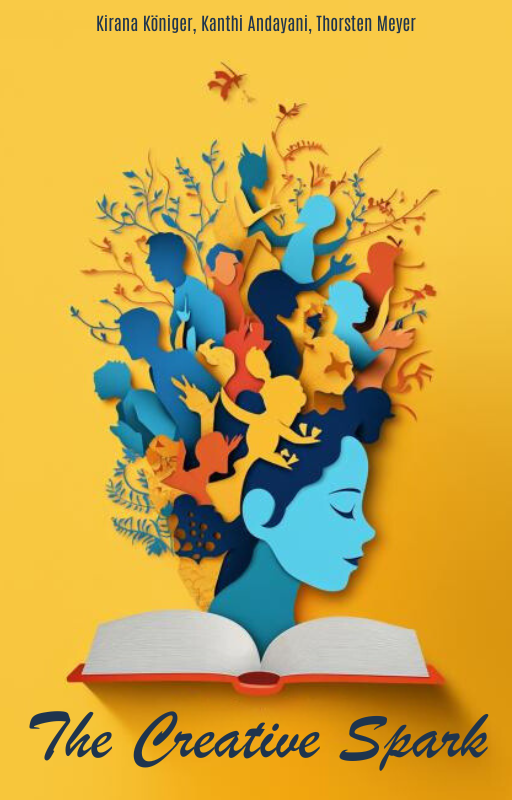Personal Growth
Unlocking Your True Potential: The Power of Self-Discovery and Self-Love

Did you realize that the average person has more than 60,000 thoughts per day? That’s a significant amount of mental activity, and it can be challenging to process all of these thoughts. Prioritizing self-care is a crucial aspect of self-awareness and contemplation, as it enables us to understand ourselves better. By engaging in reflective practices and introspection, we can identify our core values and beliefs while enhancing our emotional intelligence. Self-discovery not only benefits us individually but also those in our lives, as knowing our authentic selves allows us to live with greater intention and purpose.
Self-love is essential in order to take care of ourselves both physically and mentally. It involves accepting yourself unconditionally – flaws, weaknesses, strengths and all – without judgment or comparison to others. When we practice self-compassion instead of harsh criticism, we create space for growth rather than stagnation. This fosters greater resilience when life throws curveballs in our direction. As we embrace this journey within ourselves, we open doors for deeper connections with loved ones around us too.
Self-Compassion
Self-compassion is an incredibly powerful tool for learning about yourself and your needs. It involves being mindful of how you respond to difficult situations, taking a nonjudgmental attitude towards yourself and recognizing that everyone makes mistakes. Self-compassionate behavior allows you to forgive yourself when things don’t go as planned or are not perfect; accept the reality of who you are and all the parts that make up your identity, including flaws; love yourself unconditionally even if you feel like you have failed; be kind to yourself in times of need and recognize that no one is perfect. Taking care of oneself with self-compassion can help us learn more about ourselves by increasing our understanding of our own needs, feelings, strengths, weaknesses and goals.
When we practice self-compassion, it helps create an environment where we can nurture ourselves without judgement or criticism. This sets a precedent for healthy relationships with others because it encourages us to extend compassionate behaviors outwardly rather than focusing on negativity or judgment from other people. Practicing self-nurturing behaviours such as creating boundaries around what tasks we take on throughout the day, setting aside time for relaxation activities and engaging in positive affirmations allow us to better understand our limits which leads to greater insight into ourselves and what works best for us overall.
Self-Nurturing Behaviours
Self-nurturing behaviours are activities that can be used to promote self-care, self-love and self-reflection. They allow us to take care of ourselves in a sustainable way, by giving our mind and body the attention it deserves. By engaging in these practices we can gain insight into how we think, feel and behave – allowing us to better understand ourselves.
There are many ways to nurture yourself each day; here are some simple yet effective strategies:
1) Make time for yourself – dedicate at least 5 minutes of your day for solo reflection or meditation.
2) Exercise regularly – find an activity you enjoy doing (e.g., running, yoga, swimming etc.) and make it part of your daily routine.
3) Pamper yourself – indulge in beauty treatments such as manicures/pedicures or treat yourself to a massage once in a while.
4) Get creative – spend time on crafts or hobbies that bring out your artistic side.
5) Eat healthily – nourish your body with nutritious foods that will give you energy and leave you feeling satisfied.
6) Connect with nature– go outdoors and appreciate the natural world around you; listening to birds singing or watching clouds drift by can provide peace of mind.
7) Spend quality time with friends & family – connect with people who support, uplift and encourage you.
8 ) Unplug from technology – set aside some time away from screens so you can relax without any distractions .
9) Practice gratitude– write down three positive things about your life every morning before starting your day ; this will help put things into perspective when times get tough . 10) Give back– volunteer your time helping those less fortunate than you; seeing the joy experienced through acts of kindness is truly rewarding .
By implementing even just one of these strategies into our lives , we can cultivate greater levels of self-care , love , appreciation , understanding , respect for ourselves and others – all essential components for living a more fulfilling existence .
Self-Respect
We all have the right to be respected by others, but what about respecting ourselves? Self-respect is a key component of taking care of oneself and can often be overlooked. Respect for yourself means having inner worth, valuing your choices, and treating yourself with kindness and respect. By developing self-respecting behaviours you can learn more about who you are and how to take better care of yourself.
Self-respect begins with accepting responsibility for who you are and acknowledging that no one else has control over your life except for yourself. It also involves understanding that not everyone will like or agree with your decisions, but that doesn’t make them any less valid. Being self-respectful means setting boundaries when necessary, saying ‘no’ when something isn’t comfortable for you, and being honest in your thoughts and actions. This allows us to stay true to our values while still maintaining our sense of self-worth.
Cultivating an attitude of self-acceptance helps us develop higher levels of confidence in ourselves which can lead to feeling empowered in both small and large ways. Practicing self-compassion gives us permission to forgive ourselves when we make mistakes without beating ourselves up unnecessarily; it teaches us resilience in times of challenge rather than succumbing to feelings of unworthiness or guilt. All these qualities allow us to recognize our worth as individuals so we can live healthier lives both mentally and physically.
By examining our behaviour through the lens of self-respect we gain insight into how important it is for us maintain healthy habits throughout our lives.
Habits Of Healthy Living
Taking care of yourself can help you learn valuable information about who you really are, and how to live a healthier life. A healthy lifestyle requires regular physical activity, nutritious meals, self-care habits and mindful living.
Here’s a bullet point list of the top 10 things we can learn from taking better care of ourselves:
- Eating healthy foods helps us become more aware of our body’s nutritional needs.
- Exercise routines give us an outlet for releasing stress and promoting mental clarity.
- Self-care habits such as getting enough sleep, engaging in relaxation activities or practicing meditation can help us manage difficult emotions and stay balanced during times of uncertainty.
We also need to be mindful when it comes to making decisions about our health and wellbeing. Learning to balance work with leisure time is essential for maintaining energy levels throughout the day. Additionally, developing positive relationships with friends and family members can provide support during challenging moments in life. Lastly, setting realistic goals allows us to focus on what truly matters while staying motivated towards achieving them.
By cultivating these habits of healthy living, we gain insight into our own values, strengths and weaknesses – allowing us to make informed choices that benefit ourselves in both the short term and long run. Mental health and wellbeing go hand-in-hand with physical well-being; thus understanding how best to take care of ourselves will ultimately lead to improved overall health and happiness.
Mental Health And Wellbeing
When it comes to taking care of yourself, there are many things you can learn about yourself. Here are the top 10:
1) Mental Health | Developing healthy habits is key for maintaining good mental health. Taking time for self-care and incorporating mindful living into your daily routine will help keep stress levels low and promote a more balanced lifestyle.
2) Self Awareness | Being aware of how you think, feel and respond in different situations helps you better understand yourself and make informed decisions that honor who you are.
3) Wellbeing | It’s important to identify what makes you feel happy, fulfilled and energized since this will be helpful when finding activities or tasks that bring joy into your life.
| Physical Activity | Meditation | Social Connections |
|---|---|---|
| Exercise regularly | Practice breathing | Make time for friends |
| Eat nutritious food | Mindful Activities | Reach out to family |
| Get adequate sleep | Journal Writing | Join online forums |
4) Balance & Protection | Making sure we strike an equilibrium between work, rest, leisure activities and relationships with others protects us from overworking or overexerting ourselves which can lead to burnout or illness. 5) Stress Management Strategies Knowing how to cope with challenging emotions like anger or frustration is essential if we want to maintain our wellbeing. Identifying effective strategies such as deep breathing or positive affirmations empowers us by teaching us how to regulate difficult emotions rather than avoiding them altogether. 6) Values Clarification Knowing the values which guide our lives helps prioritize our goals and motivations so that we’re working towards something meaningful instead of feeling lost in a sea of uncertainty. 7) Personal Strengths Acknowledging personal strengths gives us a sense of confidence knowing that we have unique gifts which allow us to contribute positively in various aspects of life whether it’s at home, school or work. 8) Prioritizing Needs Understanding basic needs like food water, shelter etc., allows us to recognize where these need attention first before turning towards other areas needing improvement 9) Adaptability Adopting an attitude of flexibility enables us to adapt quickly in ever changing environments without becoming overwhelmed 10 ) Reflection Regularly reflecting on recent experiences builds insight allowing us trace patterns helping gain clarity around what works best for us moving forward.
Understanding stress levels plays an integral role in managing overall wellbeing therefore examining why they arise along with ways they can be managed effectively is equally important
Understanding Stress Levels
The elephant in the room is stress. It lurks around us, creeping into our lives like a silent predator and can leave us feeling exhausted and overwhelmed if we don’t take care of ourselves. Understanding your own stress levels and how to manage them is essential for maintaining good mental health. Here are ten things you can learn about yourself from how you take care of your stress:
1) How aware you are of your triggers – do certain people or situations cause more stress than others?
2) What areas of life need extra attention – what activities help you relax and restore balance?
3) Your coping mechanisms – when faced with stressful situations, which strategies work best for calming down?
4) When it’s time to step away – learning to recognize when it’s time to pause, regroup and recharge.
5) Effective communication skills – understanding how to express yourself clearly so that both parties feel heard.
6) Regular self-reflection – taking time out each day to check in on your thoughts and feelings.
7) Identifying unhealthy habits – recognizing patterns that lead to negative behavior such as procrastination or avoidance.
8) Knowing when to seek professional help– being able to ask for support if needed without fear or shame.
9) Healthy boundaries – having clear personal limits that keep relationships balanced and respectful.
10) Self-compassion – showing kindness towards oneself during times of difficulty instead of criticism or judgement.
By paying attention to these aspects of managing stress, we become better equipped at handling difficult moments with greater ease and resilience while developing healthier ways of looking after ourselves both mentally and physically. As we understand our own unique needs, we become empowered with the strength necessary for dealing with whatever comes our way in life; allowing us to move forward confidently towards achieving our goals. With this newfound knowledge, let’s explore further by delving into the important topic of time management!
Time Management
Time is a precious commodity, and managing it efficiently can help us to maximize our potential. Being conscious of how we use our time allows us to make better decisions about the activities that will lead to greater success in both our personal and professional lives. Here are some tips for improving your time management skills:
- Prioritize tasks based on importance rather than urgency – by focusing first on those tasks with the most impact or value you can ensure that you stay productive even when faced with multiple deadlines.
- Break down larger projects into smaller chunks – this makes them more manageable, as well as helping you to identify any areas where further research or resources may be needed.
- Work smarter, not harder – focus on efficiency over volume; by making small tweaks to your workflow such as automating repetitive tasks you can save yourself valuable minutes each day.
These simple changes in habits can have an immediate positive effect on productivity levels, allowing for more quality work within shorter periods of time. With effective time management comes improved stress levels too, since there’s less pressure to complete things before certain deadlines. Leveraging these strategies will also enable increased focus and clarity which helps uncover new opportunities for growth and development. By taking control of our own schedules, we create an environment where learning from experiences becomes easier — setting ourselves up for long-term success! To continue developing healthy self-care practices it’s important to learn how to set personal boundaries…
Personal Boundaries
It is estimated that about 90% of us have difficulty setting personal boundaries, which can lead to a lack of self-protection and assertiveness skills. Therefore, understanding how you take care of yourself involves learning how to set limits with your time and energy in order to maintain healthy relationships and respect for your own needs.
In terms of boundary setting, it means recognizing when someone or something is asking too much from you. This could be anything from saying “no” to requests at work or drawing the line between a friend who has become too demanding. It also includes being aware of triggers that make you feel uncomfortable so that you can avoid situations where those feelings arise in the first place. Additionally, it is important to understand what your physical boundaries are such as not allowing someone else to hug or touch you without consent. All these strategies help ensure that we are staying true to ourselves and taking appropriate steps towards self-preservation.
At the same time, it’s essential that we don’t forget our limitations while still preserving our safety and peace of mind. Learning how to balance this fine line will help us develop healthier relationships with others while ensuring that we honor our own needs along the way. In other words, creating clear personal boundaries allows us to protect ourselves while remaining open minded and compassionate toward others – two qualities key for successful communication and meaningful connections in life.
From understanding how best to manage our time demands down to knowing when enough is enough, developing an appreciation for what we have within ourselves helps create a deeper level of self-awareness so vital in cultivating inner well-being. Appreciation for one’s existence leads into insight on values and purpose in life – topics explored further in the subsequent section about ‘meaningful living’.
Appreciation For What You Have
Appreciating what you have and taking the time to recognize your blessings is an important part of self-care. It’s easy to get caught up in negative thoughts or feelings, but it’s essential to take a step back and try to appreciate all that life has offered us—even if we don’t always see it right away. Practicing gratitude for moments throughout our day can help shift our perspectives from lack to abundance and open our hearts to accepting ourselves as we are.
Recognizing how much there is in life that we should be grateful for can bring about a sense of contentment with who we are and where we are at this moment in time. This doesn’t mean that everything is perfect, but rather than focusing on what we don’t have, valuing our lives for their potential helps us better navigate any struggles or hardships. Appreciation isn’t just something that happens when things go well; showing appreciation even during difficult times serves as a reminder that it won’t last forever.
Being able to find some sort of joy or acceptance within challenging situations allows us to move forward more quickly with grace and resilience. Cultivating an attitude of appreciation helps us stay focused on the good instead of getting stuck in cycles of worry or fear. Doing so will provide comfort during troubling times while also helping us grow into healthier versions of ourselves each and every day. With these practices, we can start creating habits which foster self-love and lead towards a life full of purpose and meaning.
Practicing Gratitude
Gratitude is a powerful tool for unlocking inner peace and contentment. When you practice gratitude, you are taking the time to appreciate yourself and all that life has to offer. By expressing gratitude, you open up more room in your heart and mind for joy and happiness. Taking part in a regular gratitude practice can help you learn about yourself by recognizing what brings you joy, being mindful of how others impact your life, and understanding how to be thankful even when things feel difficult or overwhelming.
One way to deepen your connection with gratitude is through journaling. Reflect on moments where feeling grateful was easy – like spending time with family or friends, appreciating nature, or simply enjoying an activity that made you happy. Then take some time to think deeply about those experiences. What did they bring out in you? How did it make you feel? Use these reflections as an opportunity to dive deeper into self-exploration while also cultivating appreciation for the present moment.
Another way to express gratitude is through speaking affirmations out loud each day. Start by saying something simple such as “I am strong” or “I am capable of achieving my goals” then gradually add other positive statements such as “I appreciate myself” or “I trust in my abilities” until eventually creating a list of affirmations that resonates with who you are at this very moment in time. Through this daily practice, not only will your confidence grow but so too will your overall sense of wellbeing – allowing you to gain insight into yourself from the comfort of self-acceptance and love.
Accepting Your Strengths And Weaknesses
Now that you’ve taken the time to practice gratitude, it’s essential to accept your strengths and weaknesses. This can be difficult because many of us tend to focus on our shortcomings rather than recognizing our positive traits. However, if we take care of ourselves through self-acceptance, strength-building and accepting weaknesses as part of who we are, then we will develop a better understanding of ourselves.
The first step in this process is identifying your strengths. These may include physical abilities such as running or playing an instrument; intellectual capabilities like problem solving or writing skills; emotional qualities such as empathy for others or personal resilience; or creative talents like drawing or painting. Making a list of these attributes can help remind you just how capable you are and give you confidence when facing challenges ahead.
It’s equally important to recognize our limitations too. It might not always feel easy but acknowledging areas where we need more work allows us to grow and learn from mistakes. We should never judge ourselves harshly – instead use acceptance and kindness towards yourself so that even if something doesn’t quite go right, there’s always room for improvement next time around.
Understanding what makes us unique helps us appreciate ourselves fully and become more aware of which aspects of life bring us joy – whether it’s spending time with family or honing a specific skill set. Taking care of yourself by doing things that make you feel good is the key to learning about who you really are!
Learning From Mistakes
According to a study by the American Psychological Association, 70% of adults have made mistakes in their lives that they regret. Learning from our mistakes is key for us to become successful and reach our full potential. Mistakes are not only inevitable but also crucial for growth and development.
Failure can be daunting and it might even make us feel like giving up. However, if we accept our mistake(s) and take responsibility for them, then failure will no longer seem so intimidating. It’s important to acknowledge what went wrong or why you acted mistakenly so that you can learn from the experience and move on with greater self-awareness. By understanding where your own limitations lie and taking steps to improve on these weaknesses, you can create positive change within yourself which will ultimately lead to personal growth. Additionally, embracing failures makes learning easier because it allows individuals to look more objectively at their performance without fear of judgement or criticism from others – this helps build confidence in oneself as well as resilience against future unsuccessful attempts.
We should remember that every mistake teaches us something valuable; whether its patience, humility, or perseverance – whatever lesson we need to learn most is likely contained within the error itself. Understanding the importance of making mistakes enables one to adopt a healthier attitude towards life’s challenges; it allows us to focus less on perfectionism and instead prioritize ourselves over external expectations.
Prioritizing Yourself
Making mistakes is an inevitable part of life. And learning from them and growing as a result can be a powerful tool for personal development. However, sometimes we need to take a step back before taking that next big leap forward in our lives. This means prioritizing yourself and the self-care practices you use to nurture your body and mind.
When we prioritize ourselves, it’s not just about putting ourselves first or having time alone – though these are important factors too. It’s also about being mindful of how we treat ourselves mentally and physically on a daily basis. Are you allowing yourself enough rest? Are you engaging in activities that bring joy rather than stress? Do you give yourself permission to say ‘no’ when needed?
Self-care isn’t selfish; it’s essential for maintaining physical and mental wellbeing so that we have the energy necessary to serve others. To learn more about yourself, pay attention to how well you’re taking care of yourself. Make sure you make your health and wellness needs a priority, without feeling guilty or ashamed for doing so. By nurturing your own wellbeing, you’ll discover new things about who you are and be able to live with greater purpose, passion, and fulfilment – all while making connections with others around you!
Making Connections With Others
It’s easy to take care of our physical and mental health without ever thinking about connecting with others. But forming relationships, socializing with people, and interacting with strangers can all be beneficial for our wellbeing too. Taking the time to build connections is an important part of taking care of ourselves.
When we make meaningful connections with those around us, it gives us a sense of belonging that can help boost self-esteem, reduce stress levels, promote better communication skills and even improve overall happiness. It also provides valuable opportunities for learning new perspectives from different walks of life which can benefit how we view ourselves as well.
Making connections doesn’t have to mean huge commitments either. Even something as simple as striking up conversation at the store or attending a community event once in awhile can lead to lasting friendships or unexpected experiences that enrich your life in ways you never thought possible. So no matter where you are on your journey of self discovery – don’t forget the importance of forming relationships and engaging with others along the way!
Frequently Asked Questions
How Can I Effectively Manage My Time?
Time management is a key factor in staying organized and achieving life balance. It’s important to develop good time discipline so that you can make the most of your days, weeks, and months. Time planning is essential for setting yourself up for success; it allows you to prioritize tasks, plan ahead, and stay on top of deadlines.
Creating an effective system for managing your time can be quite daunting at first. To get started, it helps to break down large tasks into smaller chunks that are easier to manage. This will help you feel more focused and motivated as you move through each task one by one. Additionally, set clear goals and objectives with realistic timelines to ensure that nothing slips through the cracks. Having a checklist or calendar can also be helpful in keeping track of tasks and deadlines.
Finally, it’s important to remember that having a healthy relationship with time takes practice – don’t expect perfection right away! Take breaks when needed throughout the day and give yourself grace if things don’t go according to plan. With consistent effort over time, you’ll gain control of how you spend your valuable hours each day and become better equipped to take care of yourself in the process.
How Can I Learn To Appreciate And Respect Myself More?
Learning to appreciate and respect ourselves is fundamental to personal growth. With self-appreciation, we can cultivate a healthy relationship with our own emotions and thoughts. With self-respect, we are able to recognize our worth in life and value ourselves more deeply. By developing these qualities within ourselves, we gain greater insight into who we are as individuals and how we relate to the world around us.
Self-awareness is an important factor in cultivating both appreciation and respect for oneself. It involves recognizing our strengths and weaknesses while also understanding our values and beliefs. Through this process of introspection, we can learn to become better acquainted with ourselves so that we may lead meaningful lives that align with our core values. Additionally, increasing self-confidence allows us to live authentically without fear or shame about expressing who we really are.
Gaining knowledge through self-development activities such as reading books or taking classes can help foster feelings of confidence in ourselves and give us new perspectives on life. Other practical activities like journaling, mindfulness meditation, yoga or other forms of exercise can be beneficial for learning more about ourselves too. Here’s a list of some additional ideas:
• Make time for creative pursuits like painting or writing poetry;
• Take part in volunteer work;
• Have meaningful conversations with trusted friends or family members about your experiences in life thus far.
By engaging in these types of activities, we open up channels of communication between our inner selves and outer worlds – leading us closer towards achieving true self-love! This journey requires patience and dedication but ultimately yields powerful results when it comes to feeling secure in one’s identity. In turn, this newfound sense of security will enable us to make healthier decisions throughout all areas of our lives – benefiting not only ourselves but those around us too!
What Strategies Can I Use To Cope With Stress?
The feeling of being overwhelmed by stress is all too familiar. Feeling like you’re walking through life with a heavy weight on your shoulders can be difficult to cope with and it’s essential to take the necessary steps in order to manage it. There are many effective strategies for dealing with stress, from self-care practices such as meditation and mindfulness, to more structured approaches like seeking professional help or forming healthy habits. Learning how to apply different stress management techniques can help you better understand yourself and develop a healthier relationship with yourself.
It’s important to remember that there is no one-size-fits-all approach when it comes to managing stress – what works for some may not work for others. That said, there are certain coping mechanisms that can be utilized across the board when it comes to dealing with stressful situations. Self-compassion is key; try reframing negative thoughts into positive ones and practice empathy towards yourself whenever possible. Taking breaks throughout the day and engaging in calming activities such as yoga or reading can also help relieve tension and ease anxiety levels. Additionally, making sure you get adequate sleep each night is an important step in maintaining good mental health overall.
When learning how to respond effectively to stressful events, don’t forget about your social relationships either! Spending time with people who lift you up instead of bringing you down will have a huge impact on your mental wellbeing and provide invaluable support in times of need. To properly care for yourself during moments of high pressure, make sure you recognize the importance of taking action against any overwhelming emotions rather than letting them simmer until they become unmanageable – this could mean talking things out with friends or family, writing down your thoughts or exploring new hobbies outside of work or school commitments. No matter which strategy(ies) you choose, actively working on reducing stress levels should always remain top priority – both for now and for future benefit!
How Can I Create A Healthy Lifestyle For Myself?
Creating a healthy lifestyle for myself is an important step towards finding balance in all areas of my life. It doesn’t have to be complicated or time-consuming; it just needs to reflect the respect I hold for myself, and help me manage stress while also nurturing relationships with those around me.
I start by taking some time to assess what’s most important to me. That could mean developing better habits like proper sleep hygiene, eating nutritious meals, or using mindful movement as a form of self-care. These are great ways to practice basic self-respect and build a foundation for good health overall.
Another key element of creating a healthy lifestyle is understanding how to use time management effectively. Taking on too many commitments at once can lead to burnout if I don’t value my own limits and prioritize tasks accordingly. Learning when to say no allows me more freedom – both mentally and physically – so that I’m not overwhelmed by obligations beyond my control.
Finally, recognizing the importance of stress management has been essential for maintaining my wellbeing over time. Whether it’s exercising regularly, meditating daily, or simply taking frequent breaks throughout the day, having strategies in place helps me stay grounded during times of emotional unrest. Additionally, making sure I invest quality energy into meaningful relationships – whether they’re with family members or friends – gives me extra motivation to keep up with healthier habits over the long run.
By cultivating these habits together, I am able to create a holistic environment where physical well-being goes hand-in-hand with mental clarity and social connection. In this way, caring for myself becomes something enjoyable instead of feeling like an obligation!
How Can I Build Meaningful Connections With Other People?
Creating meaningful connections with other people is an essential part of a healthy lifestyle. When we form relationships, it helps us feel more connected to the world around us and can even help reduce stress levels. We also benefit from having someone to talk to, which in turn can help promote physical and mental wellbeing.
Developing social connections takes time and effort but there are some simple steps you can take that will make connecting with others easier. For example, by being open and honest about yourself, your values, passions and beliefs, you are creating an environment of understanding between yourself and those around you. It’s important to be mindful not to judge or criticize others while engaging in conversation as this can create tension rather than connection.
Making time for activities like volunteering or joining clubs related to something you’re passionate about are great ways to meet new people who share similar interests. These types of opportunities allow for meaningful conversations that may lead to lasting relationships over time. Additionally, if online socializing is more your thing, platforms such as Twitter and Facebook offer plenty of chances to connect with groups or individuals with whom you have things in common – all without leaving home!
At the end of the day, building meaningful connections goes beyond simply meeting new people; it’s about fostering genuine relationships based on trust and respect for one another. With patience and dedication, these kinds of bonds can bring immense joy into our lives – so why not give them a chance?
Conclusion
Taking care of yourself is an important step to understanding who you are and what makes you happy. It’s not just about the physical aspects, it’s also about learning how to manage your time better, appreciating yourself for all that you do, managing stress in healthy ways, creating a lifestyle that works for you, and connecting with others in meaningful ways. When we take the time to invest in ourselves, our lives can become richer and fuller than ever before!
When we practice self-care on a regular basis—even if it’s something small like taking a few minutes each day to meditate or read—we can positively transform our mental health in unimaginable ways. We learn more about ourselves because we open up new avenues of growth while developing healthier habits that will serve us well into our future. Self-care isn’t just a fad; it’s here to stay and will only bring endless rewards as long as we make sure to keep investing in ourselves every single day.
The top 10 things you can learn from taking care of yourself should encourage everyone to begin their journey today. From getting organized and setting goals to building connections with those around them and showing themselves some love—it’s never too late or too early start living life at its fullest potential through proper self-care!
Meet Nadi, the soulful writer and explorer of inner realms who graces OurMindAndBody.com with her profound insights and heartfelt wisdom. With a profound passion for mindfulness, meditation, and spiritual growth, Nadi weaves words that touch the hearts and minds of readers, leaving a lasting impact on their well-being journey.
Rooted in a background of philosophy and psychology, Nadi’s curiosity about the human mind and the mysteries of the soul led her on a transformative path of self-discovery. Drawn to the transformative power of mindfulness and meditation, she embarked on a quest to understand the intricacies of these practices, not only for her own growth but also to inspire others to embark on their own inner journeys.
Personal Growth
Book Review: “The Creative Spark: Unleashing Your Inner Artist”

Rediscovering Creativity in the Digital Age
In a world where digital distractions often overshadow our creative instincts, “The Creative Spark: Unleashing Your Inner Artist” emerges as a timely and empowering guide. Authored by Kirana Königer, Kanthi Andayani, and Thorsten Meyer, this book provides a comprehensive and accessible approach to reigniting the creative flame within each of us.
A Global Tapestry of Creative Wisdom
The authors draw on their diverse backgrounds—Indonesian roots, European influences, and global experiences—to weave a rich tapestry of creative insights. This multicultural perspective is not just a backdrop but the foundation of the book’s philosophy, which sees creativity as a universal language that transcends cultural and geographical boundaries.

Expanding the Boundaries of Creativity
“The Creative Spark” encourages readers to rethink creativity, moving beyond the traditional confines of the arts. The authors argue convincingly that creativity is a fundamental life skill, essential for problem-solving, personal growth, and professional success across all domains.
The Science of Creativity
Anchored in scientific research, the book explores:
- The neurological foundations of creativity
- The roles of different brain regions in creative thinking
- The impact of neuroplasticity on the development of creative skills
- How environment and lifestyle choices affect creative potential
Practical Exercises for Creative Development
Each chapter offers a variety of hands-on exercises designed to nurture creativity across different fields:
- Writing prompts to spark the imagination of aspiring authors
- Visual challenges for artists and designers
- Culinary experiments for food enthusiasts
- Mindfulness practices to enhance creative awareness
- Cross-disciplinary projects that blend multiple forms of artistic expression
Overcoming Creative Challenges
The book provides practical strategies for overcoming common obstacles in the creative process, including:
- Breaking through creative blocks and periods of stagnation
- Overcoming self-doubt and imposter syndrome
- Managing perfectionism and the fear of failure
- Balancing creative pursuits with everyday responsibilities
Creativity in the Digital Era
The authors thoughtfully examine how technology can both enhance and hinder creativity, discussing:
- The potential of digital tools to support creative processes
- Balancing digital and analog approaches to creativity
- Leveraging social media to share and promote creative work
- Addressing ethical considerations in the age of AI-generated art
A Journey of Self-Discovery
Throughout the book, the authors share personal stories from their own creative journeys, adding depth and relatability to the content. Readers are invited to embark on their own journey of self-discovery, guided by reflective questions and exercises designed to help uncover their unique creative strengths.
Critical Analysis
Strengths:
- A broad and inclusive approach that extends beyond traditional artistic boundaries
- A multicultural perspective offering a wealth of global insights
- A strong scientific foundation combined with practical applications
- An accessible tone that makes creativity approachable for all readers
Considerations:
- The broad scope of topics may be overwhelming for some readers
- Certain cultural references may resonate differently depending on the audience
- Some advanced readers may find familiar concepts, though they are presented with fresh insights
Conclusion: A Guide to Creative Renewal
“The Creative Spark: Unleashing Your Inner Artist” is more than just a guide to artistic expression—it’s a blueprint for living a more imaginative and fulfilling life. By redefining creativity as a core human trait, the authors offer a work that has the potential to transform not just how readers approach art, but how they approach life itself.
Rating: 4.85/5 stars
Highly recommended for its inclusive approach, scientific grounding, and transformative potential, “The Creative Spark” stands out as a valuable resource for anyone looking to reignite their creative passions and embrace a more inspired way of living.
Meet Nadi, the soulful writer and explorer of inner realms who graces OurMindAndBody.com with her profound insights and heartfelt wisdom. With a profound passion for mindfulness, meditation, and spiritual growth, Nadi weaves words that touch the hearts and minds of readers, leaving a lasting impact on their well-being journey.
Rooted in a background of philosophy and psychology, Nadi’s curiosity about the human mind and the mysteries of the soul led her on a transformative path of self-discovery. Drawn to the transformative power of mindfulness and meditation, she embarked on a quest to understand the intricacies of these practices, not only for her own growth but also to inspire others to embark on their own inner journeys.
Personal Growth
Clearing Brain Fog: Top Foods For Mental Clarity

Experiencing mental fog is like navigating through a dense forest without a map. It can be frustrating, exhausting, and hinder your ability to think clearly and be productive.
But fear not, because there is a way to clear the fog and regain mental clarity. By incorporating certain foods into your diet, you can nourish your brain and improve cognitive function.
In this article, we will explore the top foods that can help clear brain fog and enhance mental clarity.
Key Takeaways
- Brain fog is a state of mental confusion and exhaustion that hinders productivity and quality of life.
- Unhealthy eating habits cause inflammation and cognitive decline, while nutrient-rich foods repair cells and promote brain function.
- Blueberries, fatty fish, nuts, dark chocolate, leafy greens, turmeric, and green tea are foods that can improve brain health and clarity.
- A balanced diet with brain fog-fighting foods is crucial for mental clarity, and integrating these foods into your diet can help improve cognitive function and memory recall.
Top Brain Fog-Fighting Foods
I love incorporating these brain fog-fighting foods into my diet to improve my mental clarity and overall brain health.
Blueberries are a fantastic choice as they are rich in antioxidants, which prevent oxidative stress and inflammation in the brain. They also enhance memory function, making them a great addition to my daily routine.
Fatty fish, like salmon and sardines, are another favorite of mine. They contain omega-3 fatty acids that improve brain health, strengthen memory, and enhance cognitive function.
Nuts are a convenient and tasty option as they contain healthy fats, protein, and fiber, all of which contribute to improved cognitive functioning.
Dark chocolate, in moderation, is a delicious way to protect against oxidative damage and improve cognitive function with its flavonoids.
Leafy greens, such as spinach and kale, are nutritional powerhouses that provide vitamins and antioxidants to protect the brain.
Lastly, turmeric, with its anti-inflammatory and antioxidant properties, is excellent for improving memory function.
Incorporating these brain fog-fighting foods into my diet has made a noticeable difference in my mental clarity and overall brain health.
Importance of Nutrients
Nutrients from a balanced diet are vital for promoting brain health and enhancing cognitive function and memory recall. When it comes to clearing brain fog and improving mental clarity, certain nutrients play a key role.
Here are three essential nutrients that can help boost your brainpower:
-
Omega-3 Fatty Acids: These healthy fats found in fatty fish like salmon and sardines are crucial for brain health. They have been shown to improve memory and cognitive function, making them an excellent choice for combating brain fog.
-
Antioxidants: Foods rich in antioxidants, such as blueberries, protect the brain from oxidative stress and inflammation. They also enhance memory function, helping to clear mental fog.
-
Vitamin E: This powerful antioxidant found in nuts like almonds and sunflower seeds has been linked to improved cognitive functioning. Including these nutrient-rich foods in your diet can provide the essential vitamins and minerals needed for optimal brain health and mental clarity.
Gut Health and Cognitive Function
Improving gut health is crucial for enhancing cognitive function and promoting optimal brain function. The gut microbiome, which consists of trillions of microorganisms, plays a significant role in our overall health, including our mental well-being. Research has shown that a healthy gut contributes to emotional stability and cognitive capacity.
When the gut is filled with beneficial bacteria, it reduces anxiety and depression levels, leading to improved mental clarity. Incorporating whole foods into our diet is key to maintaining a healthy gut. Foods like fruits, vegetables, and whole grains are rich in fiber and essential nutrients that support gut health. Additionally, probiotic-rich foods like yogurt and kimchi can replenish the gut with beneficial bacteria.
By prioritizing gut health through a balanced diet, we can boost our cognitive function and experience greater mental clarity.
Effects of Diet on Sleep
Eating a balanced diet with nutrient-rich foods can positively impact sleep quality and duration. Poor diet choices, such as consuming excessive sugar and processed foods, can disrupt our natural sleeping habits, leaving us feeling fatigued and decreasing our cognitive function.
On the other hand, a diet that includes healthy fats and complex carbohydrates can improve our sleep. When we have sound slumber, we experience enhanced mental clarity and increased energy levels throughout the day.
Incorporating foods like blueberries, fatty fish, nuts, dark chocolate, leafy greens, turmeric, and green tea into our meals can help promote a restful night’s sleep. So, by making conscious choices about what we eat, we can improve both our diet and our sleep, leading to better mental clarity and overall well-being.
Blueberries: Memory Enhancer
Indulging in a handful of juicy blueberries is like unleashing a burst of sunshine in my mind. Their antioxidants work wonders in boosting my memory function. Blueberries are packed with antioxidants that help prevent oxidative stress and inflammation in the brain, ultimately enhancing memory function.
These little berries are also rich in flavonoids, which have been shown to improve cognitive function and protect against oxidative damage. Not only are blueberries delicious, but they are also a practical choice for improving mental clarity.
Whether enjoyed by themselves, added to a smoothie, or sprinkled on top of yogurt, incorporating blueberries into my diet is an easy and tasty way to support my brain health.
So, whenever I feel the fog rolling in, I reach for a handful of blueberries to give my memory a boost and clear away the mental haze.
Fatty Fish: Cognitive Booster
When I include fatty fish in my diet, I notice a significant boost in my cognitive abilities.
Fatty fish, such as salmon, trout, and sardines, are rich in omega-3 fatty acids, which are essential for brain health. These fatty acids help improve memory, enhance cognitive function, and even protect against age-related cognitive decline.
Research has shown that a regular intake of omega-3 fatty acids can improve attention, focus, and overall mental clarity. Additionally, the anti-inflammatory properties of omega-3s can reduce brain fog and promote a healthy brain.
Incorporating fatty fish into my meals not only provides me with a delicious and satisfying option but also supports my brain health and keeps my mind sharp.
Nuts: Brain Function Improvement
Including nuts in my diet has significantly improved my brain function and cognitive abilities. Nuts, such as almonds, walnuts, and cashews, are packed with healthy fats, protein, and fiber, all of which are essential for optimal brain functioning.
The healthy fats in nuts, including omega-3 fatty acids, help nourish the brain and support cognitive processes like memory and learning. Additionally, the protein in nuts provides a steady supply of amino acids that are necessary for neurotransmitter production, which influences mood and cognitive function.
The fiber in nuts helps regulate blood sugar levels, preventing energy crashes and promoting sustained mental clarity. I have found that incorporating a handful of nuts into my daily routine not only satisfies my snack cravings, but also boosts my brain power and enhances my overall cognitive performance.
Dark Chocolate: Cognitive Protection
Dark chocolate has been an essential part of my diet for its cognitive protection benefits. Not only is it delicious, but it also contains flavonoids that improve cognitive function and protect against oxidative damage. Flavonoids have been shown to enhance memory and attention, making dark chocolate a great choice for clearing brain fog and promoting mental clarity.
Studies have found that the antioxidants in dark chocolate can increase blood flow to the brain, which improves cognitive function. Additionally, dark chocolate has been linked to a reduction in inflammation in the body, including the brain, which can contribute to better mental health.
When choosing dark chocolate, aim for varieties with a high percentage of cocoa (70% or higher) to maximize the benefits. Remember to enjoy it in moderation as part of a balanced diet, as it is still high in calories.
So indulge in a small piece of dark chocolate to give your brain a boost and improve your mental clarity.
Frequently Asked Questions
How does brain fog affect productivity and quality of life?
Brain fog, like a dense fog over a city, impairs focus, memory, and energy levels, hindering productivity and diminishing quality of life. It’s crucial to address brain fog through a balanced diet and lifestyle choices for improved mental clarity.
Are there any other factors besides unhealthy eating habits that can cause brain fog?
Yes, besides unhealthy eating habits, other factors such as lack of sleep, chronic stress, hormonal imbalances, certain medications, and underlying medical conditions can also contribute to brain fog. It’s important to address these factors for improved mental clarity.
What are some nutrients that are essential for brain health and cognitive function?
Some essential nutrients for brain health and cognitive function include antioxidants from blueberries, omega-3 fatty acids from fatty fish, healthy fats from nuts, flavonoids from dark chocolate, vitamins from leafy greens, and anti-inflammatory properties from turmeric.
How does the gut microbiome affect emotional stability and cognitive capacity?
The gut microbiome plays a crucial role in emotional stability and cognitive capacity. Healthy gut organisms reduce anxiety and depression levels, while an imbalance can lead to mental health issues. Taking care of your gut health is essential for overall well-being.
Can a balanced diet with brain fog-fighting foods improve sleep quality?
Yes, a balanced diet with brain fog-fighting foods can improve sleep quality. A diet rich in healthy fats and complex carbs promotes sound slumber, leading to enhanced mental clarity and energy levels.
Conclusion
In conclusion, our brains deserve the best fuel to function at their peak. Just like a well-oiled machine, we can clear away the brain fog and unlock mental clarity with the power of food.
These brain fog-fighting foods are like superheroes, swooping in to save the day. Blueberries, fatty fish, nuts, dark chocolate – each one holds the key to unlocking our cognitive potential.
So let’s nourish our brains, fuel our minds, and banish brain fog for good. The power is in our hands, and on our plates.
Say hello to Cypress, the soulful wordsmith behind the insightful articles at OurMindAndBody.com. Cypress is a gifted writer who weaves words with grace and precision, using language as a powerful tool to inspire, heal, and uplift the spirits of readers.
With a background in literature and a passion for personal growth, Cypress brings a unique perspective to the world of well-being and spirituality. Having experienced the transformative effects of meditation and yoga firsthand, Cypress is deeply connected to the essence of these practices and their potential to enrich lives.
Personal Growth
Smart Investing: Maximizing Returns And Minimizing Risk

Sometimes fate has a funny way of guiding us towards what we really need. By pure chance, you have stumbled upon an article on smart investing – a topic that could potentially change the trajectory of your financial future.
Investing wisely is all about maximizing returns while minimizing risk, and it’s never too early to start. With the right knowledge, tools, and guidance, you can navigate the complex world of investments and make informed decisions that will lead to long-term success.
So, let’s dive in and explore the key principles of smart investing, shall we?
Key Takeaways
- Investing at a young age can lead to significant growth in account balance over time.
- Diversifying investments reduces risk and increases potential returns.
- Regularly monitoring investments and adjusting strategies based on market conditions is important.
- Understanding tax implications and implementing tax-efficient investment strategies can maximize returns.
What is Investing?
Investing is the process of allocating funds into different investment options with the goal of maximizing returns and minimizing risk. It involves carefully selecting investment instruments that have the potential to generate income or appreciate in value over time. By diversifying investments across various asset classes, such as stocks, bonds, and real estate, investors can reduce the risk associated with any single investment.
It is important to understand the merits and demerits of different investment options, as well as their tax implications. Regular monitoring of investments and staying updated on market trends is crucial for informed decision-making. Patience, discipline, and a realistic budget are essential for long-term investment success. Seeking mentorship or taking investment courses can provide valuable guidance in navigating the complex world of investing.
Starting Early
Beginning early in the world of finance is like planting a small seed that has the potential to grow into a mighty oak, providing shade and stability for years to come. When it comes to investing, starting early is crucial for maximizing returns and minimizing risk. Here are three reasons why:
-
Compounding Growth: Investing at a young age allows your money to grow exponentially over time. By starting early, you can take advantage of compounding, where your investments generate returns that are reinvested, leading to even higher returns in the future.
-
Financial Security: Early investments can minimize financial strain and stress in later years. By building a solid investment portfolio early on, you can create a cushion for future expenses, such as buying a house, starting a family, or funding your retirement.
-
Time to Learn and Recover: Starting early gives you ample time to learn about different investment options and strategies. It also provides a buffer to recover from any potential losses. With time on your side, you can take calculated risks, learn from your mistakes, and make informed investment decisions.
By starting early, you can set yourself up for long-term financial success and achieve your financial goals with greater ease.
Weighing Options
When it comes to choosing investment options, I consider the merits and demerits of different instruments before making a decision.
Retirement schemes offer stability but may have limited returns, while stocks provide income through buying and selling shares.
ETFs allow investors to purchase and sell stocks at listed prices, while bonds offer monthly or annual interest as a loan to a government or corporate entity.
Each investment instrument has its own advantages and disadvantages, and it’s important to weigh these factors carefully.
By diversifying investments across different asset classes, including real estate and international markets, I can reduce risk and increase potential returns.
A mix of stocks, bonds, and other assets is advisable for long-term success.
Ultimately, making a wise selection of investment options is crucial for maximizing returns and minimizing risk.
Getting an Account
Knowing where to go and which platforms to use for getting an investment account is crucial for me. With so many options available, it’s important to choose a trustworthy and cost-friendly platform.
One platform that stands out for beginners like me is Sofi Invest. Not only does it provide access to multiple investment opportunities, but it also offers valuable information on different types of investment accounts. This makes it easier for me to make informed decisions based on my financial goals and risk tolerance.
By using an online platform like Sofi Invest, I can easily manage my investments and track their performance. It’s reassuring to know that I have a reliable platform to rely on as I begin my investing journey.
Education and Mentorship
I believe that taking an investment course or finding a mentor would be beneficial for me to gain valuable insights and knowledge in the field of investing. Learning from successful investors can provide me with valuable tips and strategies that can help maximize my returns and minimize risks. Having a realistic budget for my initial investments is crucial, and starting small can be a viable approach. I can also borrow ideas from successful investors in my area of interest to further enhance my investment strategy. To grab the attention of the audience, I have created a table below that highlights the importance of education and mentorship in smart investing:
| Importance of Education and Mentorship |
|---|
| Gain valuable insights and knowledge |
| Learn from successful investors |
| Develop effective investment strategies |
| Minimize risks and maximize returns |
Taking the time to educate myself and seek mentorship will provide a strong foundation for my investment journey. It will equip me with the necessary tools and understanding to make informed decisions and navigate the complex world of investing.
Diversification
Diversifying my investments across different asset classes allows for a more balanced and potentially profitable portfolio. By spreading my investments, I can reduce the risk associated with any single investment and increase my potential returns. Here are four reasons why diversification is important:
-
Risk reduction: Spreading investments across various asset classes such as stocks, bonds, real estate, and international markets helps mitigate the risk associated with any one investment. If one asset class underperforms, the others may still provide positive returns.
-
Potential for higher returns: Different asset classes have varying levels of returns over time. By diversifying, I can take advantage of the potential growth in different sectors and markets, increasing the likelihood of achieving higher overall returns.
-
Protection against market volatility: By having a mix of investments, I can protect myself against market fluctuations. When one asset class experiences a downturn, others may be performing well, providing a cushion against losses.
-
Increased opportunities: Diversification opens up opportunities to invest in different industries, sectors, and geographical regions. This allows me to benefit from global exposure and take advantage of emerging markets or sectors that may offer higher growth potential.
Overall, diversification is a key strategy for maximizing returns and minimizing risk in my investment portfolio.
Understanding Risk and Reward
Understanding the relationship between risk and reward is crucial for making informed investment decisions. When it comes to investing, there is an inherent trade-off between the two.
Higher-risk investments have the potential for higher returns, but they also carry a greater chance of loss. On the other hand, lower-risk investments typically offer more stability but may have limited returns.
Assessing your risk tolerance is important before investing, as everyone’s comfort level with risk varies. By diversifying your investments across different asset classes and spreading your risk, you can both mitigate risk and increase potential returns.
Balancing risk and reward is key for long-term success in investing. Regularly monitoring your investments, staying updated on market trends, and adjusting your strategies accordingly will help you navigate the ever-changing investment landscape.
Seeking professional advice can also provide valuable insights and guidance.
Regular Monitoring
Regularly reviewing investment performance can help investors make informed decisions and take advantage of market opportunities. It is essential to monitor investments regularly to stay updated on market trends and news. By doing so, investors can adjust their investment strategies based on current market conditions.
Regularly reviewing investment performance allows for informed decision-making and helps investors identify any necessary adjustments to their portfolio. Additionally, seeking professional advice for investment monitoring can provide valuable insights and guidance.
Monitoring investments ensures that investors can stay on top of their financial goals and make necessary adjustments to maximize returns and minimize risk. In summary, regular monitoring is a crucial aspect of smart investing, enabling investors to make informed decisions and stay ahead of the market.
Markdown list:
- Stay updated on market trends and news
- Adjust investment strategies based on market conditions
- Seek professional advice for investment monitoring
Long-Term vs Short-Term
Moving on from the importance of regular monitoring, let’s now delve into the comparison between long-term investing and short-term trading.
Long-term investing involves holding investments for an extended period, allowing them to grow and compound over time. It is a more passive approach, suitable for investors looking for steady, consistent returns.
On the other hand, short-term trading involves buying and selling investments quickly to take advantage of short-lived market fluctuations. This approach requires active monitoring and quick decision-making. While short-term trading can potentially yield higher returns, it also comes with increased risk and requires a deeper understanding of market trends.
Both approaches have their advantages and disadvantages, and the choice between them depends on individual goals, risk tolerance, and investment strategy.
Tax Considerations
When it comes to tax considerations in investing, I always consult with a tax professional to ensure I have a clear understanding of the tax implications of different investment options. It is crucial to be aware of the tax treatment of each investment to maximize returns and minimize tax liabilities.
Here are a couple of key points to consider:
-
Different investment options have different tax treatments:
-
Stocks and bonds may be subject to capital gains tax when sold.
-
Dividends from stocks may be taxed at a different rate than interest income from bonds.
-
Retirement accounts such as IRAs or 401(k)s offer tax advantages like tax-deferred growth or tax-free withdrawals, depending on the type.
-
Tax-efficient investment strategies can maximize returns:
-
Utilizing tax-advantaged accounts can help minimize taxes on investment earnings.
-
Tax-loss harvesting, where you sell investments at a loss to offset capital gains, can reduce your overall tax liability.
By understanding the tax implications and implementing tax-efficient strategies, I aim to optimize my investment returns while staying compliant with tax regulations.
Importance of Patience
To achieve long-term investment success, I have learned that patience is a crucial virtue. It is important to resist the temptation of making impulsive decisions based on short-term market fluctuations. Instead, I have found that sticking to a well-defined investment plan and maintaining a consistent approach is key.
By avoiding emotional reactions to market ups and downs, I can make informed decisions that align with my long-term goals. Patience allows me to ride out the inevitable market volatility and stay focused on the bigger picture. It also helps me avoid unnecessary stress and panic, which can lead to poor investment choices.
Ultimately, patience and discipline contribute to maximizing returns and minimizing risk in the world of investing.
Frequently Asked Questions
How do I determine my risk tolerance when investing?
To determine my risk tolerance when investing, I assess my financial goals, time horizon, and comfort level with volatility. I consider my willingness to take on risk, my ability to handle potential losses, and my overall investment objectives.
What are some common mistakes to avoid when starting to invest?
When starting to invest, it’s important to avoid common mistakes such as not conducting thorough research, investing without a plan, letting emotions drive decisions, not diversifying, and neglecting to regularly monitor and adjust investments.
Are there any investment options that can provide both stability and high returns?
Yes, there are investment options that can provide both stability and high returns. Some examples include dividend-paying stocks, real estate investment trusts (REITs), and certain bond funds. It’s important to research and assess the risk before investing.
How can I determine if a specific investment platform is trustworthy?
To determine if a specific investment platform is trustworthy, I would research its reputation, read reviews from other investors, and check if it is regulated by reputable financial authorities. Additionally, I would look for transparency, security measures, and customer support options.
What are some strategies for minimizing taxes on investment gains?
To minimize taxes on investment gains, I recommend utilizing tax-efficient investment strategies, such as investing in tax-advantaged accounts like IRAs or 401(k)s, harvesting tax losses, and holding investments for longer periods to qualify for lower capital gains tax rates.
Conclusion
In conclusion, smart investing is all about maximizing returns and minimizing risk. It’s about starting early and making wise choices. It’s about diversifying investments and regularly monitoring their performance. It’s about considering tax implications and being patient for long-term success.
But let’s be honest, who has the time or energy for all that? It’s just so much easier to let someone else handle it and hope for the best. So, why bother with all this smart investing stuff when you can just cross your fingers and hope for a lucky break?
Say hello to Cypress, the soulful wordsmith behind the insightful articles at OurMindAndBody.com. Cypress is a gifted writer who weaves words with grace and precision, using language as a powerful tool to inspire, heal, and uplift the spirits of readers.
With a background in literature and a passion for personal growth, Cypress brings a unique perspective to the world of well-being and spirituality. Having experienced the transformative effects of meditation and yoga firsthand, Cypress is deeply connected to the essence of these practices and their potential to enrich lives.















